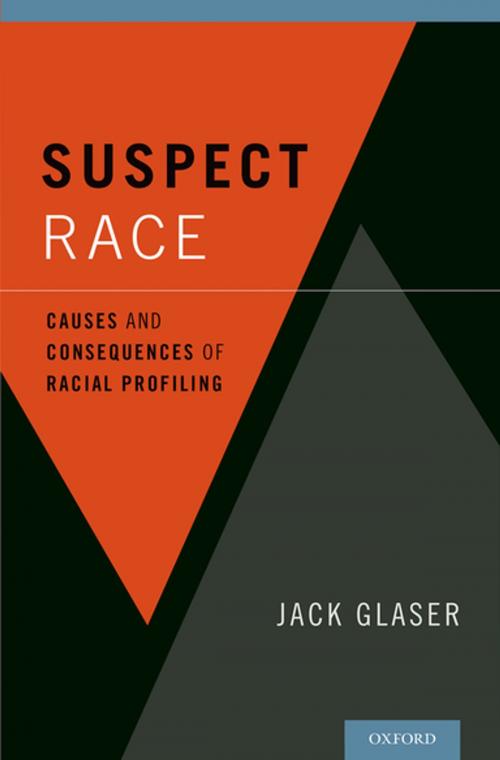Suspect Race
Causes and Consequences of Racial Profiling
Nonfiction, Health & Well Being, Psychology, Social Psychology| Author: | Jack Glaser | ISBN: | 9780190253059 |
| Publisher: | Oxford University Press | Publication: | November 7, 2014 |
| Imprint: | Oxford University Press | Language: | English |
| Author: | Jack Glaser |
| ISBN: | 9780190253059 |
| Publisher: | Oxford University Press |
| Publication: | November 7, 2014 |
| Imprint: | Oxford University Press |
| Language: | English |
Until now, most discussion of racial profiling has given only fleeting consideration of its causes. Those causes are overwhelmingly psychological. In Suspect Race, social psychologist and public policy expert Jack Glaser leverages a century's worth of social psychological research to provide a clear understanding of how stereotypes, even those operating outside of conscious awareness or control, can cause police to make discriminatory judgments and decisions about who to suspect, stop, question, search, use force on, and arrest. Glaser argues that stereotyping, even nonconscious stereotyping, is a completely normal human mental process, but that it leads to undesirable discriminatory outcomes. Police officers are normal human beings with normal cognition. They are therefore influenced by racial stereotypes that have long connected minorities with aggression and crime. Efforts to merely prohibit racial profiling are inadequate. Additionally, Glaser finds evidence that racial profiling can actually increase crime, and he considers the implications for racial profiling in counterterrorism, finding some similarities and some interesting differences with drug war profiling. Finally, he examines the policy landscape on which racial profiling resides and calls for improved data collection and supervision, reduced discretion, and increased accountability. Drawing on criminology, history, psychological science, and legal and policy analysis, Glaser offers a broad and deep assessment of the causes and consequence of racial profiling. Suspect Race brings to bear the vast scientific literature on intergroup stereotyping to offer the first in-depth and accessible understanding of the primary cause of racial profiling, and to explore implications for policy.
Until now, most discussion of racial profiling has given only fleeting consideration of its causes. Those causes are overwhelmingly psychological. In Suspect Race, social psychologist and public policy expert Jack Glaser leverages a century's worth of social psychological research to provide a clear understanding of how stereotypes, even those operating outside of conscious awareness or control, can cause police to make discriminatory judgments and decisions about who to suspect, stop, question, search, use force on, and arrest. Glaser argues that stereotyping, even nonconscious stereotyping, is a completely normal human mental process, but that it leads to undesirable discriminatory outcomes. Police officers are normal human beings with normal cognition. They are therefore influenced by racial stereotypes that have long connected minorities with aggression and crime. Efforts to merely prohibit racial profiling are inadequate. Additionally, Glaser finds evidence that racial profiling can actually increase crime, and he considers the implications for racial profiling in counterterrorism, finding some similarities and some interesting differences with drug war profiling. Finally, he examines the policy landscape on which racial profiling resides and calls for improved data collection and supervision, reduced discretion, and increased accountability. Drawing on criminology, history, psychological science, and legal and policy analysis, Glaser offers a broad and deep assessment of the causes and consequence of racial profiling. Suspect Race brings to bear the vast scientific literature on intergroup stereotyping to offer the first in-depth and accessible understanding of the primary cause of racial profiling, and to explore implications for policy.















